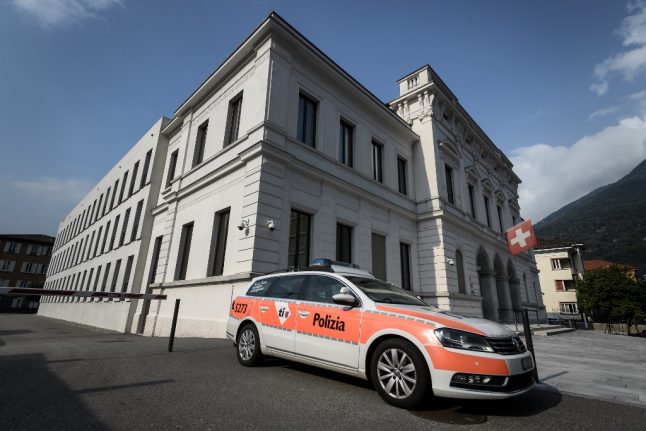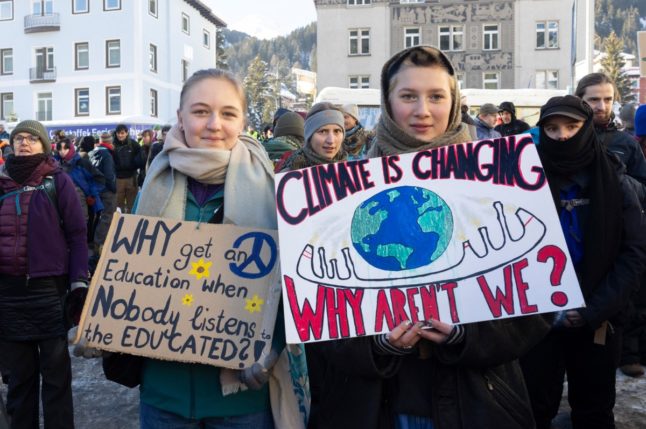While it is easy to monitor public spaces, checking compliance in the privacy of your home is not as simple.
Let’s say that you disregard the rule limiting get-togethers to five people and invite a larger group to your apartment. Let’s further assume that your neighbours get wind of your infraction and call the police.
READ MORE: EXPLAINED: What are Switzerland's current coronavirus rules you need to know
What could happen?
By law, the Swiss police can’t enter your home without a search warrant, except in life-threatening emergencies.
“If the residents refuse to open the door, that is their right. They don't have to let law enforcement in”, Florence Frei, communications officer at the Vaud cantonal police, said in an interview with Le Matin newspaper.
“Pandemic rules don’t give authorities more power”, Frei noted.
She added that “we don’t usually carry out spontaneous checks in the private sphere. While unusual behaviour, increased noise, or other factors may cause us to verify that the restrictions are being observed, entry into the home is only by mutual agreement”.
But that doesn’t mean that the resident will prevail.
Frei said that if the police find on the spot that rules have been broken, they will report the offending person to judicial authorities.
This happened to a man in Clarens, Vaud, who was fined 2,000 francs for organising a party for 70 guests in his apartment in December.
And a woman in Grenchen, canton Solothurn, was fined 1,900 francs for ending her quarantine four days early.
“Fortunately, refusals to cooperate rarely occur”, Frei said.
What are the penalties for breaching coronavirus measures?
They can be steep.
In December, the Swiss Conference of Prosecutors adopted a uniform set of sanctions for non-compliance with the country's Covid-19 restrictions.
READ MORE: What are the penalties for breaking Switzerland’s coronavirus rules?
These are the recommended penalties for individual offenders:
- Avoiding quarantine or isolation: 1,000 to 1,500 francs
- Not wearing a mask where it is compulsory to do so: 250 francs
- Gatherings of more than 15 people in public: 100 francs
- Avoiding medical supervision: 800 to 1,000 francs
For restaurant owners and organisers of events, the fines are as follows:
- Serving food and drinks to people not seated at a table: 500 francs
- Not having a health protection plan in place: 2,000 francs
- Insufficient protection plan: 500 to 1,000 francs
- Non-compliance with official health rules: 500 francs
- Gatherings of more than 50 people: 2,000 francs



 Please whitelist us to continue reading.
Please whitelist us to continue reading.
Member comments